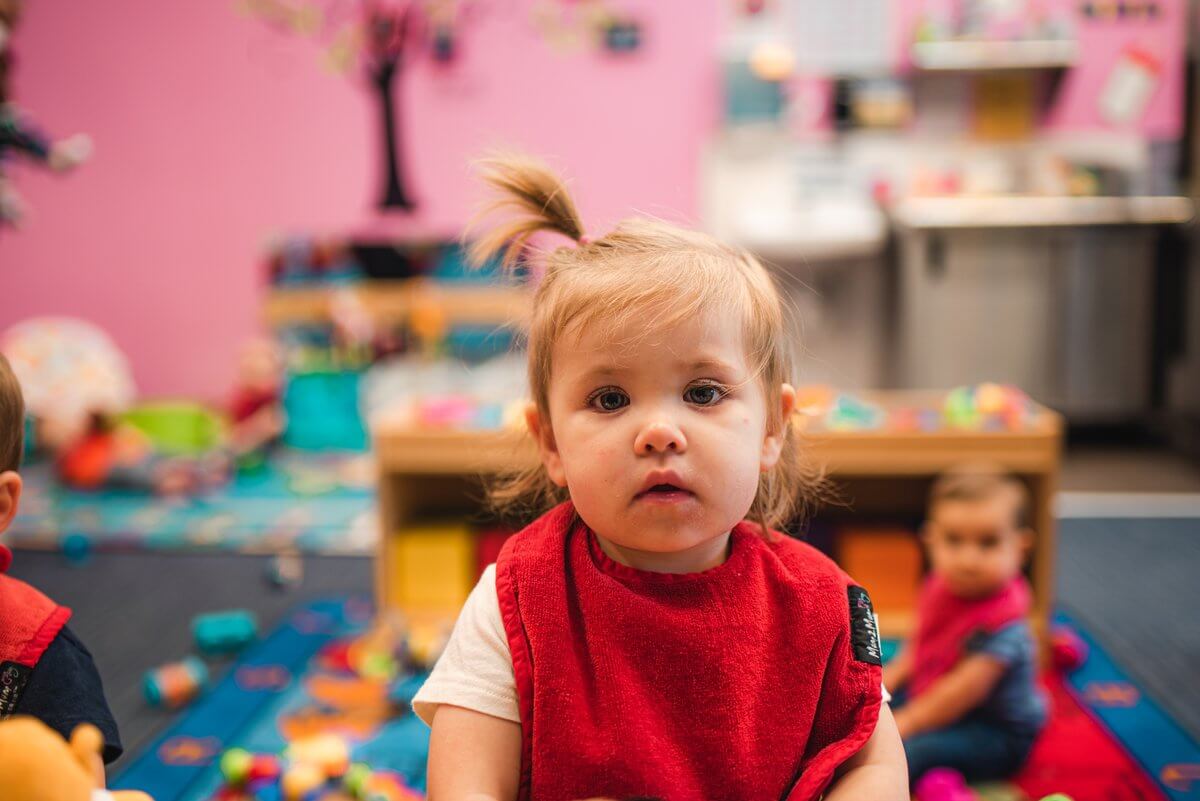Full-time vs Part-time Daycare: What’s Best for Your Baby?

Every family’s childcare journey looks a little different.
Picture this: Elena is a full-time marketing manager. She relies on a consistent five-day daycare schedule so she can focus on her workday, confident that her baby is thriving in a safe, structured environment. Across town, Jordan works part-time from home as a graphic designer. For his family, three mornings of daycare each week provide the perfect balance—giving his child opportunities to socialize and learn while leaving afternoons open for naps, playdates, and family time.
Both parents made thoughtful choices, and both children are benefiting in their own ways.
That’s the beauty of the full-time vs part-time daycare decision. There’s no single “right” answer. Instead, the best choice depends on your child’s age and personality, your work situation, and what feels sustainable for your family.
This article explores the ins and outs of full-time and part-time daycare to help you choose what’s best for your family.
What’s the Difference Between Full-Time and Part-Time Daycare?
Full-time daycare usually means five days per week, around 7–9 hours a day. It’s designed to support working parents who need consistent care throughout the week.
Part-time daycare often looks like 2–3 days per week or shorter daily schedules, such as mornings only.
Schedules vary depending on the center, but both options typically include meals, naps, outdoor time, and age-appropriate learning.
Part-Time Daycare: Pros, Cons, and Who It’s Best For
Pros of Part-Time Daycare
- Lower cost: Paying for fewer hours or days each week makes it more affordable.
- Easier transition: A gentle introduction for infants or toddlers new to group care.
- Flexibility for parents: Especially helpful if you work from home or have a flexible schedule.
- More family time: Children spend more time at home bonding with parents or relatives.
Cons of Part-Time Daycare
- Less consistency: Children may take longer to adjust to routines.
- Slower social adjustment: Fewer hours with peers could delay group comfort.
- Limited availability: Desired time slots often fill quickly.
For many families, the part-time daycare pros and cons highlight its role as a flexible support option, not a lesser choice.
Full-Time Daycare: Pros, Cons, and Who It’s Best For
Pros of Full-Time Daycare
- Stronger routine: Consistent daily structure helps children adjust more quickly.
- Social growth: Frequent group play supports faster socialization and friendships.
- Stable caregiver relationships: More time with teachers builds trust and attachment.
- Full coverage for working parents: Reliable care from drop-off to pick-up.
Cons of Full-Time Daycare
- Higher cost: A bigger financial commitment than part-time care.
- Longer days: Some children may tire easily.
- Less flexibility: Fewer hours at home for family downtime.
When weighing full-time daycare pros and cons, many families find that the benefits of consistency and social-emotional growth balance the challenges.
Factors to Consider When Choosing Daycare Scheduling
When asking yourself “Should I do full-time or part-time daycare?” keep these factors in mind:
- Your child’s age: Infants may need gradual transitions, while toddlers thrive with structured routines.
- Work situation: If you work remotely, you may not need full-time care, but daycare for work-from-home parents still provides dedicated time for focused work.
- Socialization needs: Ask yourself, is part time daycare enough for socialization? Some children flourish with just a few days, while others benefit from daily peer interaction.
- Emotional readiness: Some parents feel more at ease with full-time coverage, while others prefer a gradual approach.
- Budget: Costs can vary significantly between full-time and part-time enrollment, so consider both immediate affordability and long-term planning.
What Part-Time and Full-Time Schedules Typically Look Like
Full-Time Example (M–F, 8:30 am – 5:30 pm):
- Breakfast and morning play
- Curriculum-based activities
- Nap and lunch
- Outdoor play and enrichment
- Afternoon snack and pick-up
Part-Time Example (M/W/F, 8:30 am – 12:00 pm):
- Breakfast and circle time
- Play-based learning
- Outdoor time and snack
- Pick-up before nap
Both options provide engaging activities, but the difference is in frequency and duration.
How Our Center Supports Growth and Learning
At Casa de Corazón, our programs are designed as full-day, year-round care to provide consistency, routine, and deep immersion in our Spanish-language curriculum.
While some centers offer part-time enrollment, we’ve included a part-time schedule example above to give families a sense of what it might look like at other providers.
Our focus is on delivering a reliable, full-time experience that nurtures growth, learning, and connection every single day.
FAQs About Full-Time vs Part-Time Daycare
What’s best for my family schedule?
The “best” choice is the one that aligns with your daily routines, work demands, and your child’s temperament. For some families, a full-time schedule provides consistency and structure. For others, part-time care blends well with flexible or remote work.
I work from home—is full time necessary?
Not always. If you’re able to manage work tasks while your child is home, part-time daycare can give you focused work hours while still offering your child opportunities to socialize and learn. However, some work-from-home parents still choose full-time care for the reliability and peace of mind it brings.
Will part-time daycare be enough for my child to learn and socialize?
Yes. Even a few days each week provide valuable peer interaction, group learning, and exposure to new routines. If your child thrives on consistency, you may eventually transition to more days, but part-time daycare still supports meaningful growth.
Should I feel guilty choosing full-time care?
Absolutely not. Full-time daycare offers structure, socialization, and loving care that benefit children just as much as part-time care. Choosing full-time simply means you are aligning care with your family’s needs—and that is something to feel confident about, not guilty. (We explore this topic further in our article How Infant Daycare Can Combat New Parent Burnout & Restore Balance.)
How will daycare impact my child’s development and our family dynamic?
Both full-time and part-time daycare can positively support your child’s cognitive, emotional, and social development. At the same time, your choice will shape family rhythms. Some families value the daily consistency of full-time schedules, while others enjoy the added bonding time of part-time care. In either case, children benefit most when parents feel secure and supported in their decision.
Choosing with Confidence
Just like Elena and Jordan, families make different choices because they have different needs—and that’s okay. Some parents lean on full-time daycare to support their careers and give their children a strong daily routine. Others find that part-time care offers the right balance of flexibility and socialization.
Whichever path you choose, remember: what matters most is that your child feels safe, loved, and supported in their growth. With the right environment, both full-time and part-time daycare can help your child thrive.
Here’s how one Casa parent put it:
“I believe my experience with childcare has been a positive one because I chose a center that not only aligned with my family’s values but one where I could see how my child was going to be cared for and loved. It is also comforting when I receive updates throughout the day about how they are doing, thanks to the Casa App. For example, I get updates about when they are eating, napping, and even pictures. That peace of mind means everything.”

